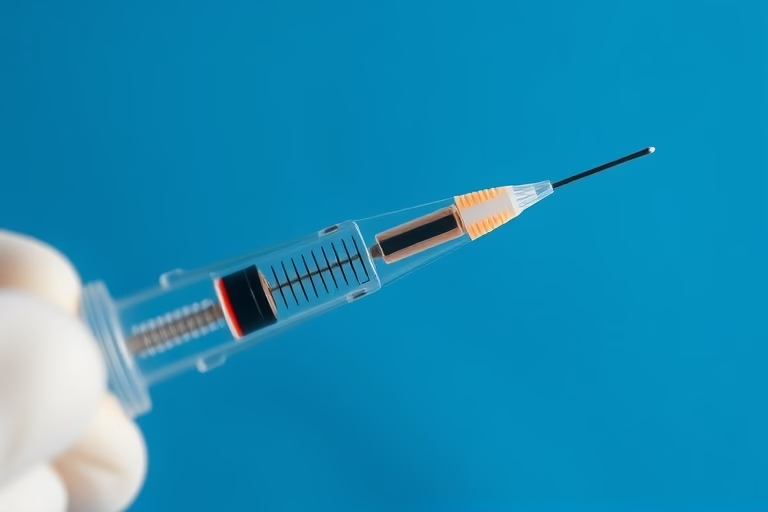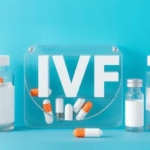We will be talking about the IVF needle, a crucial instrument in the world of assisted reproductive technology. In vitro fertilization (IVF) is a complex process where eggs are extracted from a woman’s ovaries and fertilized by sperm in a laboratory. The IVF needle is employed throughout various procedures, including ovarian stimulation, egg retrieval, and, in some cases, embryo transfer. Understanding the role and types of IVF needles can alleviate anxiety for prospective parents and help them better prepare for their journey through IVF.
The IVF needle is a vital component in achieving successful pregnancies through assisted reproductive techniques. Different types of IVF needles exist for various functions during the process, each designed to ensure the safety and comfort of the patient while optimizing the effectiveness of the procedure. Knowledge about IVF needles can empower patients, enabling them to ask informed questions and seek the best possible care for their fertility treatments.
Types of IVF Needles
In the realm of IVF, several types of needles are utilized, each serving distinct purposes. Understanding these types will help prospective parents comprehend the IVF process better.
The primary categories of IVF needles include:
- Oocyte Retrieval Needles: These needles are used to aspirate eggs from the ovaries during the egg retrieval process.
- Injection Needles: Commonly used for hormone injections to stimulate the ovaries before retrieval.
- Transfer Needles: These smaller needles assist in transferring embryos into the uterus.
- Blood Collection Needles: Used for monitoring hormone levels and general health during the IVF cycle.
Each type of IVF needle must be chosen based on the specific treatment protocols and patient needs to ensure optimal outcomes.
Importance of Needle Selection
The selection of the appropriate needle during the IVF process is critical. Factors include:
- Patient Comfort: Needles designed for minimal discomfort are essential for patient compliance and overall experience.
- Procedure Effectiveness: The right needle enhances the chances of success, especially during egg retrieval and embryo transfer.
Choosing the right needle involves understanding the patient’s anatomy, comfort levels, and any underlying medical conditions that could affect the procedure.
Needle Sizes and Specifications
Understanding needle sizes is crucial as it affects the procedures during IVF.
IVF needles come in different gauges, typically ranging from 26 to 18. A higher gauge means a thinner needle.
Factors influencing the choice of gauge include:
- The Type of Procedure: More delicate procedures may require finer needles.
- Patient Sensitivity: Some patients may prefer thinner needles to reduce anxiety or discomfort.
The technical specifications, such as the length and bevel of the needle, also play a role in the efficiency and comfort during the procedures.
Best Practices for Needle Usage
Adhering to best practices when using IVF needles can significantly impact patient safety and procedure outcomes. Important practices include:
- Sterilization: All needles and equipment must be sterile to prevent infections.
- Technique: Proper injection techniques minimize trauma to the tissue.
Educating both medical staff and patients about these practices can enhance safety and efficacy throughout the IVF process.
Pain Management During Needle Injections
Understanding how to manage pain during needle injections is very important in the IVF process.
Methods of pain management can include:
- Topical Anesthetics: Creams or sprays that numb the skin before needle insertion.
- Ice Packs: Applying cold packs can decrease sensation at the injection site.
- Pain Relief Medications: Non-steroidal anti-inflammatory drugs (NSAIDs) may be taken prior to the procedure.
By incorporating pain management techniques, patients may experience a more comfortable IVF journey.
IVF Needle Safety Considerations
Safety during the use of IVF needles must be prioritized to avoid complications.
Considerations include:
- Proper Disposal: Needles should be disposed of in a designated sharps container to prevent injury and infection.
- Patient Health Monitoring: Regular blood tests to monitor the patient’s response to IVF medications can identify any adverse effects.
Safe practices contribute to better outcomes and fewer complications during the IVF process.
Advancements in IVF Needle Technology
Recent technological advancements continue to improve the IVF landscape.
Innovations include:
- Ultrasound-guided Needles: Using imaging to increase the accuracy of needle placement during egg retrieval.
- Smart Needles: Needles equipped with sensors to monitor and provide feedback during procedures.
These advancements offer improved precision and safety, enhancing the overall success rates of IVF treatments.
Patient Experiences with IVF Needles
Patient experiences can vary greatly when it comes to the use of IVF needles.
Commonly reported feelings include:
- Anxiety: Many patients express fear and anxiety about needles and the procedures.
- Empowerment: Gaining knowledge about the processes and tools helps patients feel more empowered.
Sharing experiences through support groups or resources can help new patients feel more prepared.
Final Thoughts
Understanding the various aspects of IVF needles is essential for both patients and healthcare providers. Selecting the right needle type, size, and ensuring proper techniques can significantly impact the success rates of fertility treatments, ultimately enhancing the patient’s experience. The advancements in needle technology and safety practices contribute positively to the IVF process.
When patients grasp the importance of these needles and procedures, they can take an active role in their fertility journey, ask informed questions, and feel more equipped to tackle challenges as they arise. Pain management practices, safety considerations, and advancements in technology make the process of IVF less daunting, encouraging hopeful parents to remain optimistic about their outcomes.
By staying informed, patients empower themselves and enhance the likelihood of a successful IVF journey. Continuous education around the IVF needle and its importance will support the dreams of countless families seeking to grow.
Frequently Asked Questions
- What is an IVF needle?
An IVF needle is a specialized instrument used in various procedures during in vitro fertilization, such as egg retrieval and hormone injections.
- How is an IVF needle used?
IVF needles are used for administering hormones, collecting eggs, or transferring embryos. Each has specific applications to ensure effectiveness and safety.
- Does using an IVF needle hurt?
Some discomfort may be felt; however, pain management techniques are employed to minimize this during procedures.
- What are the risks associated with IVF needles?
While generally safe, there are risks of infection or injury if proper protocols are not followed.
- Can I see the IVF needle before my procedure?
Yes, many clinics allow patients to ask questions and understand the instruments that will be used during their IVF journey.
Further Reading
What Type of Psychotherapy Is Best for Anxiety?







